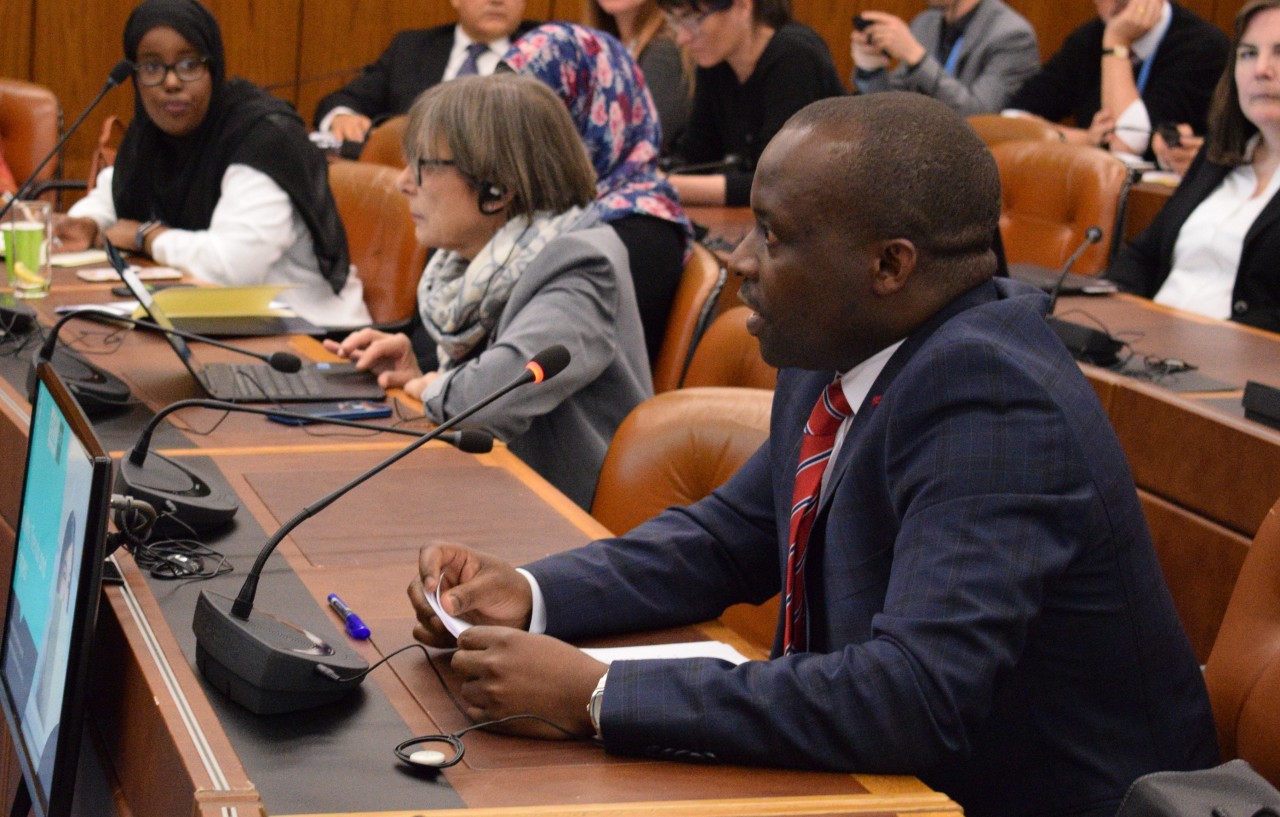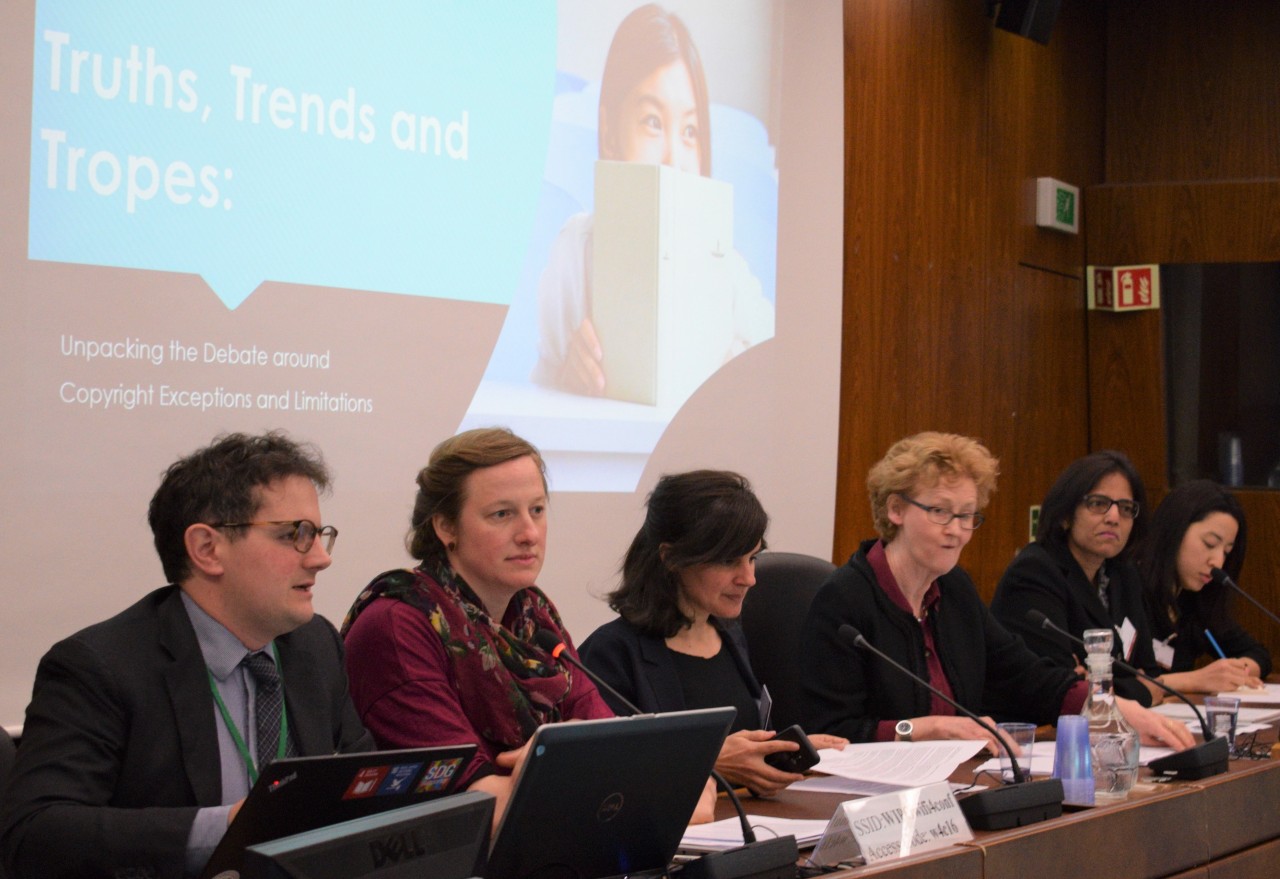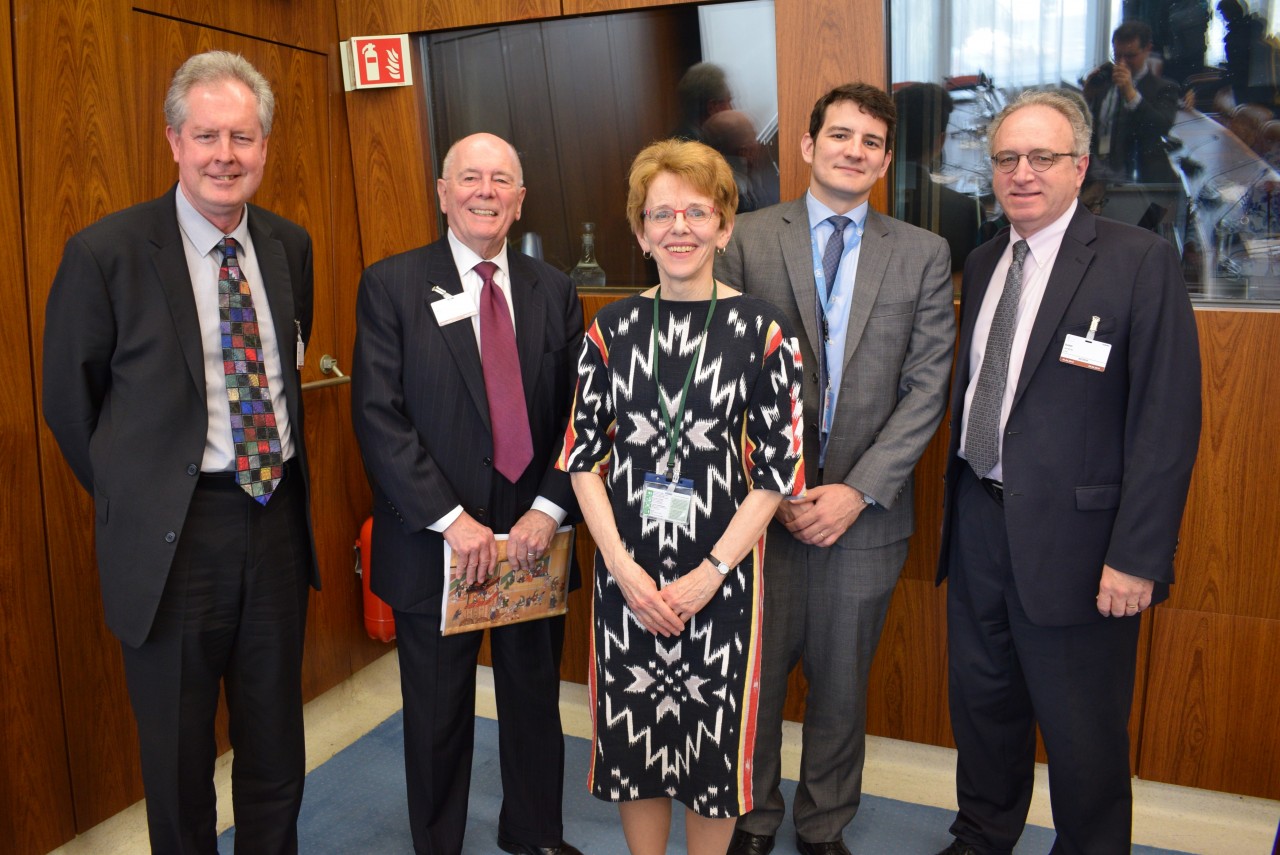Global Discussions on Exceptions and Limitations to Copyright for Libraries Continue
09 April 2019
​It’s time to look back at a of week global discussions on copyright at the World Intellectual Property Organisation (WIPO). There were useful new reports and materials, signs of consensus on all sides that exceptions and limitations are an essential part of the copyright framework, and further proof that action is needed to allow libraries to work across borders.
The World Intellectual Property Organisation (WIPO) Standing Committee on Copyright and Related Rights (SCCR) met from 1 to 5 April in Geneva. Bringing together senior officials from copyright offices around the world, it is the focus of efforts to bring about positive reforms for libraries globally.
This particular SCCR marked an important moment. Following the agreement of action plans on exceptions and limitations a year ago, we are beginning to see results. The next six months will be crucial.
Studies
As part of the action plans, several studies and typologies were presented by expert authors. These included typologies of copyright laws affecting libraries, museums and education, as well as background papers on museums and archives, and an interim report on education and distance learning.
The typologies seek to give an overview of how existing statutes define relevant exceptions and limitations in order to allow for comparisons. The library typology, by Professor Kenneth Crews, analyses, for example, the ways in which preservation exceptions may vary according to the activity, the (copy)rights affected, and other elements.
The typologies are a useful tool for countries looking to think through reforms, providing a checklist of questions that governments could seek to address when drafting laws. All typologies presented are available in the list of documents at the SCCR/38 meeting page.
The regional seminars
As recently announced on the IFLA website, WIPO is organising three seminars in different world regions on the topic of exceptions and limitations to copyright. These will take place in Singapore, in Kenya and in the Dominican Republic, and will bring together representatives of copyright offices from all countries in each region, as well as WIPO officials and NGO representatives such as IFLA.
At these meetings, participants will be exploring the landscape of copyright exceptions and limitations in their region, and whether they allow libraries to fulfil their missions, including across borders.
The information gathered will inform discussions at an international conference on exceptions and limitations at WIPO in October, and during the next SCCR the following week.
At SCCR last week, IFLA shared its hopes for the regional seminars, and underlined its readiness to help make them a success. To do this, effective representation of libraries and other beneficiaries will be necessary, as will be a focus on copyright laws themselves.
Side events
Truths, trends and tropes: unpacking the debate around copyright exceptions and limitations
While the agenda item on exceptions and limitations moves forward, there are still some myths and miss-understandings around what these are about. At a lunch-time side-event co-organised by IFLA, Education International and EIFL, and attended by government delegates and NGOs, speakers explained why “Licenses cannot solve it all”, “exceptions and limitations do not mean the end of markets”, and “there is a need for global normative work on exceptions and limitations”.

After the introductory words of Stephen Wyber (IFLA), Nikola Wachter (Education International) and George Tebagana, Second Secretary of the Permanent Mission of Uganda, speakers shared both theory and examples to fight the above statements. Presentations were given by Teresa Hackett (EIFL), Victoria Owen (CFLA), Teresa Nobre (COMMUNIA) and Luis Villarroel (Corporación Innovarte). Four students of the University of Toronto, Joy Ramlogan, Fuschia Norwich, Amal Hussein and Lubnaa Jaumbally illustrated the points with very interesting personal examples.

The power point presentation is available for download.
Archives and Copyright: Access to Our Documentary Heritage
On Tuesday, a side-event organised by the International Council on Archives looked into archives and copyright. Speakers talked about what makes archival material special, and the challenge of orphan works, extended collective licensing and archives (and why not everything can be licensed).

Cauê Oliveira, form the Permanent mission of Brazil to the WTO, shared the example of the sad loss of archival material in Brazil during the National Museum’s fire in 2018, and how a better copyright system could have saved material through preservation efforts, and could gather existing digital reproductions spread around the world.
More information on these side events is available on our webiste.
Other agenda items
Although exceptions and limitations took two full days of the week, other items were also discussed.
Discussions continued around the draft broadcasting treaty, which has not yet gathered enough consensus on the basic elements for an international conference (where a Treaty might finally be signed) to be organised. Discussions will continue at the next SCCR, where libraries will insist on the need for adequate exceptions and limitations.
The Secretariat also gave an update about progress on the study on copyright in the digital environment (now focused on music), whose results will be presented at the next SCCR. Other items starting to be discussed are copyright for theatre directors, and re-sale rights.
IFLA delivered several statements on behalf of the library sector. You can check them on the page Statements at the World Intellectual Property Organisation (WIPO) under SCCR38.
The livestream of the meeting is also available on the WIPO website.